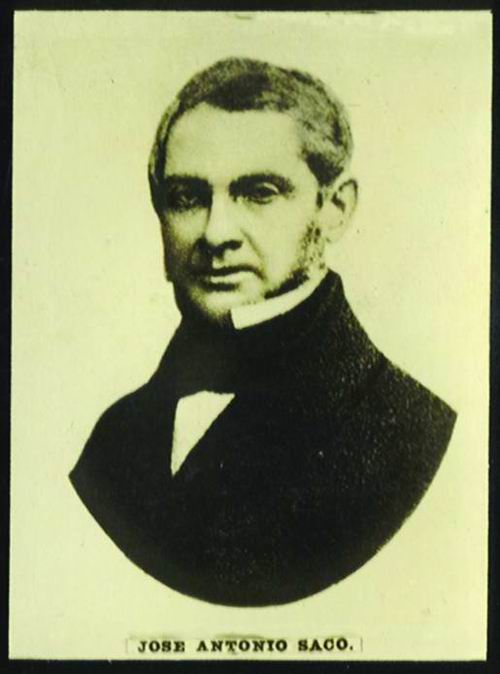2.2.4 The political and social thought of José Antonio Saco (1797 – 1879), his essay work

José Antonio Saco is defined as one of the first intellectuals to truly love controversy, many of which he embraced with a passion aroused more by the act of polemicizing than by its initial leitmotif. The best of his prose remains in this type of text, both for the logic of his arguments and for his broad command of language, which he acquired in his pen “plasticity” for a wide variety of purposes.
In both his newspaper articles and his essay-like texts, he displays a fine sense of humor that surprises with the use of distinctly Creole vocabulary. The inclusion of ironic and even sarcastic phrases is in keeping with what would be known as joking in Caribbean literature. This is even more evident in his private correspondence, where he sheds all the formal trappings that contact with the general public implied.
Politically, although he did not explicitly call for armed struggle, he does seem to have been a lover of independence; though, based on his pragmatic philosophy, he would not take on risky personal situations. This is directly intelligible in his own conceptions of Cuban nationality, a term that would be used and defined for the first time in his energetic prose, apropos of annexationist sentiments that were already manifesting across the political and ideological spectrum of his time.
In this sense, he expressed: “As for me, although I know the immense advantages that Cuba would obtain with this peaceful incorporation into the United States, I must confess with all the candor of my soul, that I would have a reservation, a secret feeling for the loss of our Cuban nationality, (…) I want Cuba to be for Cubans and not for a foreign race…” and he would affirm in another of his writings: “every people that inhabits the same soil, and has the same origin, the same language, and the same customs and habits, that people has a nationality (…) To deny Cuban nationality is to deny the light of the sun of the tropics at noon.”
However, he suffered from the racial intolerance of his time and did not include Black people or African roots as a structuring factor of nationality; this did not prevent him from seeing the substantial injustice of the slave trade and slavery, which served as the subject of several writings and historiographical volumes, a genre to which, in addition to the sagacity of his opinions, he made important contributions in terms of the handling of a remarkable amount of information.
Part of his essay work, even without intending to, has a frank costumbrista tone, as is the case with his text “Memory on Vagrancy on the Island of Cuba”, written in New York in 1830, in which he addresses most of the social problems that the colony suffered: vagrancy, begging, multiple vices that corroded the entrails of the nation, but, more than evils inherent to society or the idiosyncrasy of the Cuban – others would try to distort these realities and present the Cuban as an inferior being from the social point of view – he opportunely blames it on the deficient administration exercised by the colonial authorities.
José Antonio Saco’s work stands out for its Cuban identity, not only for his ardent defense of nationality, but also because his texts already reveal the main personality and style traits of the Cuban intellectual, who does not meditate from a cold detachment from reality but rather engages with the object of study, achieving objectivity precisely through the subjectivity he constantly invests in his analyses.








